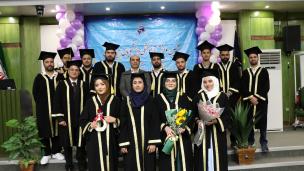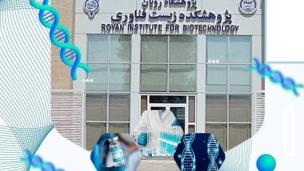We are dedicated to finding new technical solutions for medical devices and filling the gap between the medical and engineering communities.
History
The School of Advanced Technologies in Medicine (ATiM) was established in 1999, as a department of Physics and Biomedical Engineering within the School of Medicine. The department is then promoted to its current stature as “School of Advanced Technologies in Medicine” in 2012.
Vision
Through its departments, ATiM creates engineering knowledge and novel biomedical technology that improve the human condition through the advancement of clinical care and biomedical science.
Mission
As an interdisciplinary school, ATiM plays an essential role to bridge engineering, science and medicine. We highly aim to educate and train the next diverse generation of interdisciplinary biomedical sciences. Our efforts focus on creating enabling technologies for the improvement of human health and health care. Moreover, to participate with scientific institutes, we engage with local to the global community of medical researchers to identify important problems that impact human health and solve them by using our technical expertise.
Department and Majors
The School of ATiM encompasses four departments of Bioelectrical Engineering, Biomaterial Engineering, Bioinformatics and Medical Imaging Technology offering education at MSc and PhD levels.
Courses
We provide high quality courses and research programs for MSc and PhD students. We enhance content and syllabus each semester considering the changes in technology and health care services. To learn more about courses, programs and semesters, visit our website
Facilities
ATiM provides 16 laboratories, a Linux Cluster Computer lab and Clinic of Therapeutic Games. In addition to the different resources available at this school, you will have access to the most credible medical databases through the Digital Library of the university
Area of Focus
The research priority areas are based on advancement in technology and needs of society. Now they are working in the following areas:
- Design & develop an OCT-based ocular health kiosk to diagnose Diabetic Retinopathy
- Dynamic registration and intraoperative navigation for image guided spine surgery
- Biomedical Signal Processing
- Microscopic Image Analysis
- Medical Image Analysis
- Ocular Image Analysis
- Medical Signal & Image Modelling
- Bioinformatics
- Game & Treatment
- Image Guided Navigation, Surgery and Medical Robotics
- Scopy Image & Video Analysis
- Cardiovascular Image and Signal Analysis
- Neuroscience
Prize and Honor
The faculty members and students have succeeded to achieve:
- Winning Avicenna Research Award by our faculty members
- Winning Mirzakhani Early Career Award by our faculty members
- Winning Rooyesh Technological Award by our faculty members
- Winning Switzerland 'Seed Money Grant' by our faculty members
- Winning Research fellowship from Humboldt Foundation by our faculty members
- Winning Research fellowship from Telecom Paris by our faculty members
For more information please click here.



